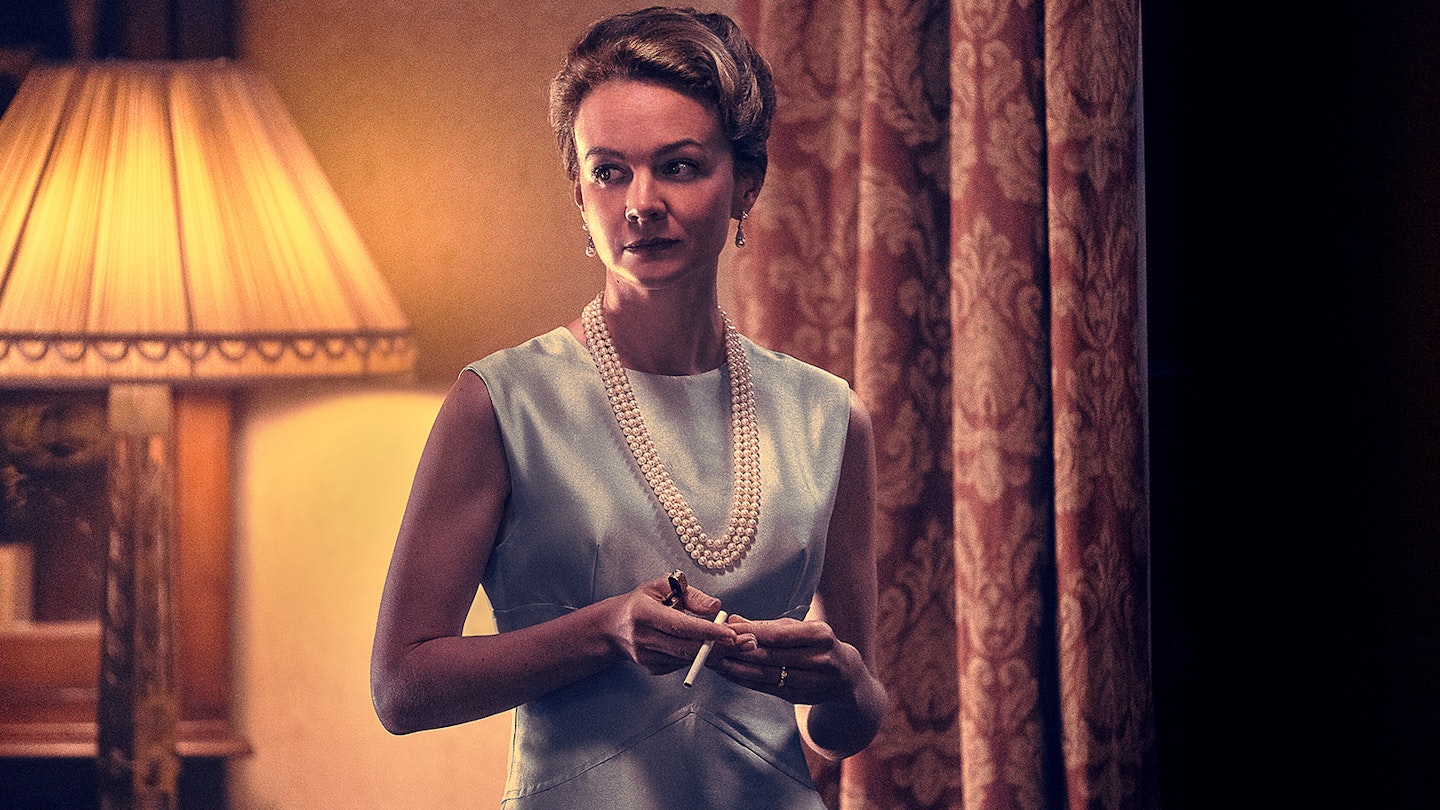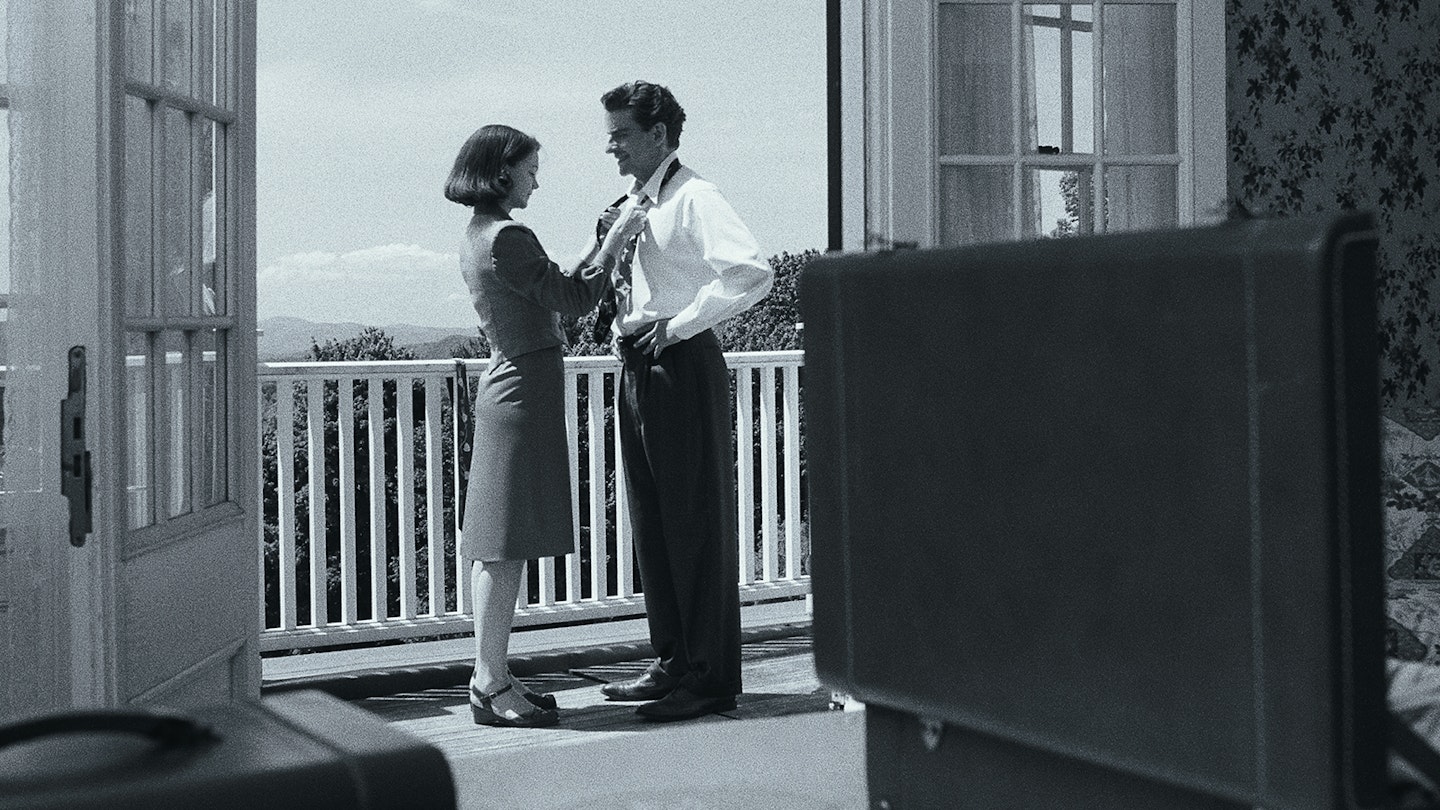Leonard Bernstein (pronounced “stine”, not “steen”) has been going through something of a purple patch on the big screen recently. The Lennaisance started with Steven Spielberg’s 2021 West Side Story, with music by Bernstein; continued with one Lydia Tár studying conducting under the master’s tutelage; and now reaches its zenith with Maestro, Bradley Cooper co-writing (with Josh Singer), directing and starring as Bernstein in a Spielberg/Scorsese-produced extravaganza. Even further from the shallows now, Cooper’s directorial follow-up to A Star Is Born is a much more ambitious affair, charting Bernstein’s complex relationship with the three pillars in his life: his wife Felicia Montealegre (Carey Mulligan), his hedonistic bisexuality, and his obsession with music. On paper it’s a portrait of a troubled genius, but emerges even more effective as a portrait of a troubled genius’ spouse.

Despite the column inches, the most instantly forgettable thing about Maestro is Cooper’s prosthetic nose. The first half of the film — shot by Matthew Libatique in beautiful black and white, framed in a boxy 1.33:1 aspect ratio — centres on Bernstein’s rise up the classical-music ranks, his courtship of emerging actor Felicia and his clandestine relationship with David (Matt Bomer, who delivers a heart-breaking depiction of crestfallenness as he is introduced to Felicia). In this half, there are filmmaking fireworks a-plenty: a tricksy single take that follows Bernstein out of bed and walking directly into Carnegie Hall; some nifty scene transitions; and a vigorous dance rehearsal for ballet Fancy Free that pulls Bernstein and Montealegre into the choreography.
Make no mistake, this is Mulligan’s movie.
When the film moves into colour (and 1.85:1), the formal bravura calms down as if a reflection of Felicia slowly dissolving into depression. As Bernstein’s star is born and his roving eye goes into overdrive, the idyll that is their relationship begins to crumble, reaching a stunning crescendo in a blistering Thanksgiving argument in the couple’s upper-floor New York apartment, as Felicia tears strips from her husband, oblivious to a giant Snoopy balloon floating by the window in the Macy’s parade. Yet, as Bernstein and Felicia’s life takes a turn for the tragic, the relationship reveals other colours, such as a sense of familial warmth, and movingly evokes the love that underpins the most unconventional of relationships, the chemistry between Cooper and Mulligan palpable.

Cooper seamlessly stitches in Bernstein’s music throughout — listen out for ‘On The Waterfront’, his opera ‘A Quiet Place’, and a cheeky use of the West Side Story ‘Prologue’ — but the biggest symphony drops involve the conductor interpreting his beloved Mahler: in black and white, a performance of the 5th Symphony that, in an Obvious Visual Metaphor, sees a watching Felicia completely consumed by a German Expressionist-like shadow of Bernstein conducting. When the film switches to colour, there’s a magnificent recreation of the ‘Resurrection’ symphony performed at Ely Cathedral in 1973, in which Cooper loses himself in Bernstein losing himself in the music. But perhaps the most transcendent musical moment surprisingly involves Tears For Fears, as Bernstein dances in a reverie in a gay club: a man, for once, comfortable in his own skin.
Aided by Kazu Hiro’s make-up artistry (it’s more than just a schnozz), Cooper’s effortless charm and lust for life is a constant, from the twinkly young conducting prodigy to the bloated, leathery teacher. But while Cooper inhabits Bernstein as an actor, he doesn’t entirely illuminate him as a filmmaker. The film’s focus on the marriage is at the expense of exploring his gay life or his creativity; the balance feels off. Also, perhaps because he is such a quicksilver figure, Cooper never manages to make Bernstein the emotional centre of his own film. That job is left to his co-star.
Make no mistake, this is Mulligan’s movie (she deservedly gets top billing). Mixing a sense of refined poise with an inner resilience, it’s possibly Mulligan’s best performance. And, in the final stretch, becomes emotionally devastating. She even makes a movie-movie trope feel real when Felicia, exasperated with her husband, walks fully clothed into a swimming pool and sits cross-legged on the bottom (like you do). For all Cooper’s skill at portraying conflicted and mercurial, it’s Mulligan who provides the film’s beating heart, a kind of Tom Cruise to Cooper’s Dustin Hoffman. In the end, it’s clear who the true maestro is.
